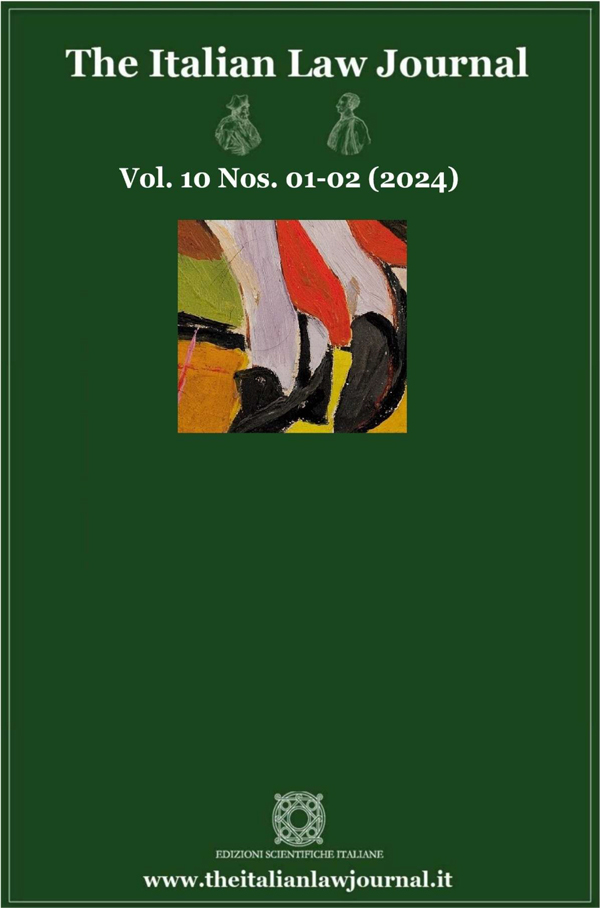11 THE ITALIAN LAW JOURNAL NO. 1 (2025)
Italian Influence on European Law: Where Are the Women?
by Fernanda G. Nicola
This article interrogates the conspicuous absence of women in European law through the lens of a recently published volume on the Italian influence on European law. The volume, which compiled biographies of eleven judges and advocates general serving at the European Court of Justice since its inception in 1952, reveals an unmistakable ‘Italian-ness’ that, until 2000, was exclusively male. Strikingly, the majority of these Italian jurists were also legal scholars, with careers rooted in Italian academia before their appointments. By juxtaposing this male-dominated narrative with the gradual increase of women in Italian legal academia, the article examines the systemic barriers that have historically precluded women from ascending to positions of substantive authority within the legal profession.
DOI 10.23815/2421-2156.ITALJ ISSN 2421-2156
The article critically explores the entrenched, patronage-based academic recruitment system—including the notorious ‘concorso’—and the enduring gender hierarchies sustained by traditional institutions such as the informal maestro networks. Drawing on historical data, scholarly testimonies, and reflections from academic symposia, the study reveals how these practices have constrained the visibility and influence of pioneering Italian women jurists. Despite recent reforms aimed at fostering inclusivity, these measures have yet to dismantle the deep-rooted cultural and institutional barriers evident in the opaque selection processes by which the Italian government selects candidates for European judicial appointments.
If the link between the all-male biographies of Italian ECJ judges and the exclusion of women from Italian legal academia is not immediately evident, it becomes clearer when seen from the vantage point of a scholar who emigrated and pursued most of her career in the United States. Observing the persistent, personal, and systemic struggles faced by female colleagues who remained in Italy underscores how deeply gender inequities are embedded in the legal-academic environment. The article concludes by calling for a comprehensive research agenda—combining qualitative and quantitative methods—to recover the silenced histories of Italian women in law and to advocate for a more equitable framework in legal academia.




























